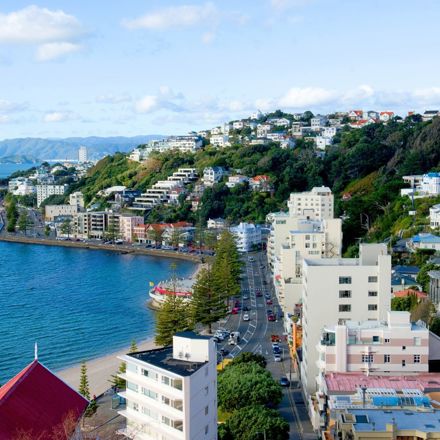Economic trends suggest that 2025 could be a favourable time for property investment. Interest rates have begun to ease after hitting historic highs, making mortgages more affordable. This has reignited buyer interest across the country. Both CoreLogic and leading banks forecast national property price increases of 5–7% this year, driven by increased buyer activity and a housing supply catching up with demand.
Additionally, the government’s plans to fully reinstate mortgage interest deductibility by 2025/26 adding further appeal for investors. These changes mean property ownership could yield higher profitability over the long term, especially in stable or growing markets.
Interest rates and market dynamics
The Reserve Bank of New Zealand's recent interest rate cuts have made borrowing more affordable, potentially stimulating the property market. However, CoreLogic NZ advises caution, noting that factors like housing affordability constraints and a softening labour market could influence the pace of market recovery.
Spotlight on Wellington
Wellington's property market has been undergoing a cooling phase. Recent data shows slower rental price growth, with the median weekly rent at $650 in late 2024. Contributing factors include increased housing availability and reduced public sector demand due to government restructuring.
Wellington still holds potential for investors, particularly in family homes in desirable suburbs like Thorndon, Kelburn, and Karori, where demand remains steady. Proximity to education hubs and city amenities keeps these areas attractive for tenants.
Hawke’s Bay’s Market
Hawke’s Bay offers a contrasting dynamic. The region continues to experience strong demand for rental properties, especially in areas like Napier, Hastings, and Havelock North. The median weekly rent for a three-bedroom home reached $670 by the end of 2024. The region’s economic stability, driven by its robust agricultural sector and lifestyle appeal, supports ongoing rental demand.
Hawke’s Bay presents opportunities in new developments and well-maintained properties close to employment hubs. High tenant demand, coupled with relatively quick turnover rates, ensures low vacancy periods and stable rental returns.
Is it worth being a landlord in 2025?
Being a landlord in New Zealand presents both opportunities and challenges. The reintroduction of mortgage interest deductibility, set to reach 100% on April 1, 2025, offers a significant financial advantage for property investors, allowing them to pay less tax and make more money.
To be frank, the rental market is experiencing a slowdown, with annual growth settling at 1%, below the long-term average. Additionally, the increasing housing supply, which has outpaced population growth, is expected to ease pressure on rents.
While the tax benefits enhance the appeal of property investment, landlords must navigate a more competitive rental market with moderated rent increases. Success in this environment will require strategic property management and a keen understanding of regional market dynamics.
National trends suggest moderate growth and favourable conditions for investors. However, the success of property investments in 2025 will largely depend on understanding regional nuances. In Wellington, focusing on well-located properties in sought-after suburbs may offer the best returns, while Hawke’s Bay remains a strong market for those targeting high-demand areas. By staying informed and tailoring strategies to market dynamics, investors and landlords can navigate 2025 with confidence.




